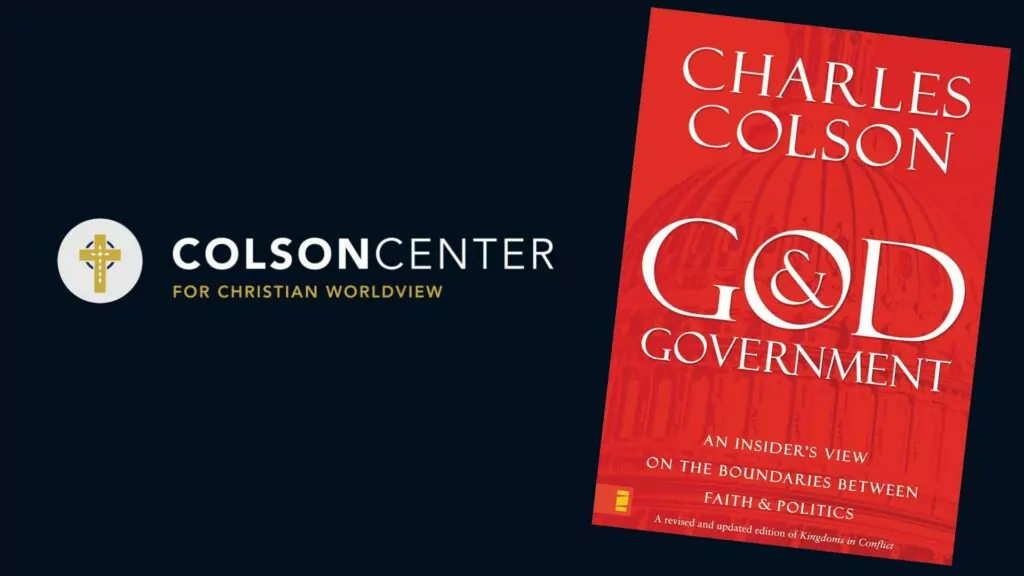Israel at War
Once again the Middle East is in flames. The incalculable human misery that is graphically portrayed in the media cannot leave one unaffected. The terrorists’ abuse and massacre of unsuspecting Israeli civilians on October 7, 2023 was horrific and of unprecedented barbarity. When Israel responded, Palestinian families have seen their homes and possessions disappear in rubble and dust as bombs fell on Gaza.
The ongoing conflict between Israel and the Palestinians seems intractable and without any solution. The war is also being fought through the media. Both true facts and lies are vying for a hearing. Winston Churchill is said to have once quipped: “A lie gets halfway around the world before the truth has a chance to get its pants on.” Well, that may be the case, but an effort should at least be made, even within the confines of an article, to separate some facts from fiction.
Some key facts
Although present day Israel has no biblical right to the land (see “Is the State of Israel a fulfillment of biblical prophecy?” at ReformedPerspective.ca/Israel), yet Israel has every legal right to be there as a nation according to international law.
Here are some key facts. In 1947, the United Nations (UN) voted to partition Palestine into two states when the British Mandate authorized by the League of Nations would come to an end in the following year. One state was to be for the Jews and the other for the Palestinian Arabs. Jerusalem and Bethlehem were to be in an international zone.
When Britain withdrew, Israel declared its independence and occupied the land designated to it by the UN. However, rather than adopt the UN’s plan of two states, Arab armies from all the surrounding nations attacked Israel, determined to exterminate it. They were not successful. This was not the last time that the Arabs would try to rid the Middle East of Israel.
When Egypt, Syria, and Jordan were preparing to attack Israel again, Israel launched a pre-emptive strike in 1967. The war lasted six days and ended with Israel occupying the Sinai Peninsula, the Golan Heights, the Gaza Strip, and the West Bank. In 1973 Egypt and Syria once more attacked Israel, with Israel once again prevailing. Eventually, Egypt under Anwar Sadat recognized Israel in 1978, and for his trouble, he was assassinated by Arab extremists in 1981. King Hussein of Jordan, the United Arab Emirates, and Bahrain have also made peace with Israel. Morocco has diplomatic relations with Israel. The refusal of other Arab nations to recognize the State of Israel has continued up to today. This refusal, especially as demonstrated by Hamas, has been the key obstacle to peace in the region.
Arab grievances
Many grievances fuel the hatred for Israel and the determination to wipe the country off the map. A common charge against Israel is that the Jews displaced Palestinians who had been living in the Holy Land for centuries. A little history lesson is needed to answer this accusation.
Prior to the massive immigration of European Jews to Palestine in the late 19th century, the land, which is now the land of Israel, was mostly barren and under-populated. An 1857 report from the British consul in Jerusalem reported that the country needed more people. As time went on, further reports noted that the area was becoming depopulated, villages were abandoned, and land was going out of cultivation. All this is credible information because living in that area at the time was extremely harsh. Infant mortality was high, life expectancy short, and water scarce. People were not moving in but out. When Jews started coming in, they bought land usually from absentee landowners, and over time dramatically improved the living conditions. By the mid-1890’s the Jewish presence was important and by 1947 they formed a majority in the territory that became Israel. Because the Jews prospered, Arabs moved in to share in their prosperity and the improved health care.
It is a myth that European Jews displaced a large, stable, long-term Muslim Arab population that had lived in that part of the Middle East for centuries. There has never been a Palestinian people as a separate ethnic and national entity. Technically speaking there is no such thing as the Palestinian people since there has never been a Palestinian State, that is, an Arab state in what is now Israel. Many of the people who call themselves Palestinians today are descendants of the relatively recent economic immigrants mentioned above.
Because of the growing number of Jews who legally owned the land they lived on, the territory at the eastern end of the Mediterranean, historically known as the land of Canaan, became in essence a homeland for persecuted Jews. This development eventually led to the formation of the State of Israel in 1948. Israel has the full political right to be a nation in the Middle East, occupying the land that their ancestors have lived in for thousands of years. Israelites and their descendants have been dwelling continuously in the land since the days of Moses.
With the establishment of the State of Israel, the Jews had encouraged the Arabs to stay and build the country with them. However, the Palestinian Arabs were advised by the surrounding Arab nations to leave Palestine and that after the war (1948) and the anticipated defeat of the Jews, they could return. Israel, however, won the war and 700,000 Arabs who had left Israel were homeless. Here are the makings of the refugee problem.
Meanwhile, the Arabs who had stayed in Israel were relatively well off and shared in the general prosperity of Israel. They still have their own representatives in Parliament, and enjoy freedom of the press and religion. Arabic is also an officially recognized language. As a minority within a Jewish state, they undoubtedly have their own special difficulties and hardships. However, in the past wars, they have shown solidarity with the Israelis.1
Another Arab grievance with more validity is that Israel continues to build settlements in the West Bank, which is not part of Israel according to the 1947 UN partition plan. Arabs living in the West Bank are understandably upset by the establishment of Jewish settlements in the region and the gradual encroachment of more and more settlements into what they regard as their territory. Israel is therefore accused of being an expansionary colonial power. Even prominent Israelis and some of the most ardent supporters of Israel like Alan Dershowitz oppose these settlements.
But, for context, a couple of things should also be noted. From Israel’s government’s point of view, their occupation of the West Bank is a result of their winning the 1967 war, a conflict with which Arabs had hoped to obliterate Israel. Wars have results, and who controls what changes with those results. Furthermore, Israel has shown that the matter of settlements is not a barrier to peace if Arabs would be willing to recognize Israel. When Israel made peace with Egypt in 1979, Israel removed their Sinai settlements. In 2003, Prime Minister Ariel Sharon indicated that Israel would be willing to make “painful concessions” regarding the settlements in exchange for peace and give up some of them. Under his watch, Israel left everything they owned in Gaza when 21 settlements were dismantled in 2005. Polls have shown that the majority of those who live in these settlements are willing to abandon their homes if it means peace for Israel.2
The legality of Israel’s occupation is currently before the International Court of Justice in The Hague. The UN General Assembly had asked the court for a non-binding advisory opinion on Israel’s policies in the occupied territories. The issue is incredibly complicated. It came before the court in February (2024) but the expectation is that it will take the judges months to issue an opinion.
The refugee problem
The media have informed us at length of the tragedy of the refugee camps where Arabs who fled from Israel now live and where new generations are being raised. What is not often made clear is that Arab countries do not want the refugee problem to be solved. They want it to serve as a permanent pressure and weapon against Israel. The Arab leaders show that they do not care about the refugees by refusing to let them be permanently resettled in their own countries. Meanwhile the refugee camps continue to be breeding grounds for hate and terrorism. Here is a problem that could have been solved but the failure to do so is ultimately because Arabs refuse to recognize the legitimacy of Israel.
A resolution of the problem of the refugees has been further complicated by the emergence of The Palestine Liberation Organization (PLO) in 1964, and more recently Hamas which is even more radical in its determination to wipe Israel off the map. Hamas was founded in 1987 and took over from the PLO in about 2006, assuming control of the Gaza Strip shortly after that. It also launched the massacre of last year in southern Israel.
Because everything depends on recognizing Israel’s right to exist, the United Nations Relief and Works Agency for Palestinian Refugees in the Near East (UNRWA) is not seeking solutions for the resettlement of the refugees as would normally be the case. Instead it is simply maintaining these refugees in the camps. According to the UNRWA the total number of refugees was about 5.6 million Palestinians in 2019, of which 1.5 million lived in camps. The numbers have continued to increase. Entire generations are being raised and educated to hate Israel.
The refusal to recognize Israel
Much could be solved if Arab leaders would have accepted a two-state solution of Israel and a Palestinian State in 1937 (the Peel Commission), 1948, and 2000. On all these occasions, Israel accepted a two-state solution, but to no avail. There was no Arab reciprocity because it would involve recognizing the legitimacy of the State of Israel. This was dramatically displayed with the Camp David peace negotiations in 2000-2001 (a result of the 1990’s Oslo Peace Accords). To everyone’s amazement and even shock, Israel’s Prime Minister Ehud Barak offered the Palestinians virtually everything they had been demanding: a state with its capital in Jerusalem, control over the Temple Mount, a return of approximately 95 percent of the West Bank and all of the Gaza Strip, and a $30 billion compensation package for the 1948 refugees. Yet Yasser Arafat rejected that historic offer. Why? Because he would have had to acknowledge the legitimacy of the State of Israel. He preferred to go to war. Suicide bombings and terrorist attacks followed. When Israel responded with force, it was blamed for overreacting and not caring about the Palestinians. Arafat and his PLO, and now Hamas, did not and do not care about the fate of the Palestinians in their camps and in Gaza. Hamas continues to use civilians as shields in their war and then blame Israel for the casualties.
After the horrid and barbaric abuse and slaughter of civilians by Hamas on October 7, 2023, Israel has responded as they have the full right to do so in self-defense. They have, however, taken extraordinary measures to safeguard civilian life in Gaza – measures unprecedented in military history according to one expert.3 But if the enemy uses civilians as a shield what can one expect but civilian deaths? One must not forget that according to the polls taken after the attack, most of the Gazan population was in favor of Hamas and its barbaric terrorism against civilians in the October 7 atrocities.4
There is also an important underlying religious dimension. Islamic fundamentalism will never recognize Israel as legitimate because according to them, territory once conquered by Islam, as the territory of Israel was once conquered, can never be relinquished. It must be retaken. The Hamas Charter (1988) states that “the land of Palestine is an Islamic Waqf consecrated for future Moslem generations until Judgment Day” (Art. 11). Hamas therefore “strives to raise the banner of Allah over every inch of Palestine” (Art. 6). Consequently, “there is no solution for the Palestinian question except through Jihad. Initiatives, proposals and international conferences are all a waste of time” (Art. 13).
Not surprisingly when Hamas terrorized southern Israel last October, they did so crying: “Allahu Akbar!” that is, “Our god is the greatest!” The hatred of Jews and their perceived illegitimacy has a long history in Islam. They regard the Jews as being under God’s curse5 and terrorists shouting “Allahu Akbar” undoubtedly think that to kill Jews is to do the will of Allah.
Where does the solution lie?
The root political problem is the refusal to recognize Israel. As long as that is the case, there is no solution. Combined with the underlying problem of nationalism and self-determination are also the conflicting claims of Judaism and Islam. Both Israel and Arab Muslims have a strong emotional attachment to Palestine. Arab Muslims assert that they are descendants of Abraham, through Ishmael. As Muslims, they claim Jerusalem as a holy site because according to Islam, Jerusalem was the last place Mohammed visited before he ascended into the heavens and talked to God. Neither side can appeal to the Bible and say on the basis of the Scriptures, “The land is mine!” Many experts think that a solution should be sought in having two viable and realistic states in the Middle East, one for Jews and one for the Arabs in the region. For that to happen, however, Israel needs to be assured that such an Arab state would not have the desire to keep working on the long term goal of putting an end to the State of Israel. That trust is understandably completely lacking at the moment.
A young woman, in front of the Tel Aviv Museum of Art, looking over a wall of pictures of the Israelis abducted by Hamas during its October 7 terrorist attack. (Photo credit: Jose Hernandez Camera 51/Shutterstock)
Endnotes
See also Alan Dershowitz, The Case for Israel (Hoboken, NJ: John Wiley & sons, 2003), 80–85.
Dershowitz, The Case for Israel, 176–77.
Ruth Marks Eglash, “Urban Warfare Expert says Israeli Military Taking Unprecedented Steps to Protect Gaza Civilians” Fox News, 17 February 17 2024, accessible at Fox News website.
TOI Staff, “Poll Shows Soaring Palestinian Support for Hamas; 72% back October 7 Atrocities” 13 December 2023, accessible at the Times of India website.
See Haggai Ben-Shammai, “Jew-Hatred in the Islamic Tradition and the Koranic Exegesis,” in Antisemitism Through the Ages, ed. Shmuel Almog (Oxford, UK: Pergamon Press, 1989), 164–66.
For further reading
Helpful resources for information found in this article include:
Alan Dershowitz, The Case for Israel (Hoboken, NJ: John Wiley & sons, 2003), a defense by a Professor of Law, Emeritus, at Harvard University, of Israel’s rights, supported by indisputable evidence. He is however not an uncritical supporter of Israel. Most recently he also wrote War Against the Jews (2023).
Joan Peters, From Time Immemorial: The Origins of the Arab-Jewish Conflict Over Palestine (New York, NY: Harper & Row, 1985), a classic compilation of the facts by a former White House consultant on the Middle East. Its publication was hailed as a historic event.
Top photo is a section of Gaza City after bombardment by Israeli forces. Photo credit: ImageBank4u/Shutterstock...































